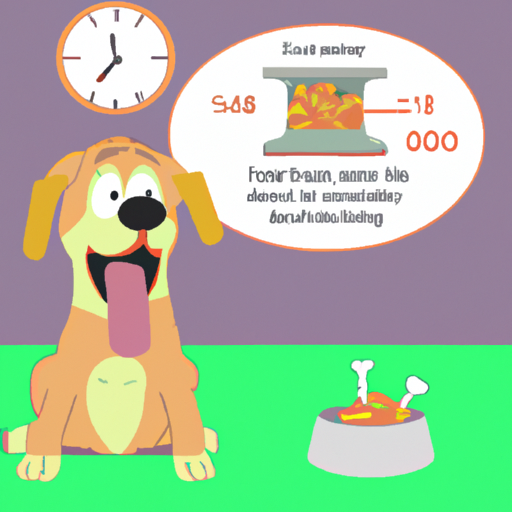Understanding Your Dog’s Digestive System
Just like you, your furry friend has a digestive system that’s responsible for breaking down food, absorbing nutrients, and eliminating waste. Unlike you, however, your dog’s digestive process is a bit different.
Here’s a quick overview:
-
Mouth: Here, the dog’s digestion starts with mechanical digestion. Mechanical digestion involves the breaking down of food into smaller pieces by chewing.
-
Esophagus: The chewed food then travels down the esophagus to the stomach through a process called peristalsis.
-
Stomach: In the stomach, the food gets mixed with stomach acids and digestive enzymes to break it down further.
-
Small Intestine: The broken-down food then moves to the small intestine, where most of the nutrient absorption occurs.
-
Large Intestine: Any leftover waste is passed into the large intestine, where water is absorbed, and the waste is turned into feces.
Factors That Influence Digestion Time
Just like in humans, a dog’s digestion time can vary based on several factors:
- Age: Puppies tend to digest food faster than older dogs.
- Diet: The type of food your dog eats also affects digestion. High-fiber diets can speed up digestion, while high-fat diets can slow it down.
- Health: Certain health issues, like digestive disorders, can affect your dog’s digestion time.
| Factors | Digestion Time |
|---|---|
| Age | Young dogs digest faster |
| Diet | High-fiber diets speed up digestion |
| Health | Digestive disorders can slow down digestion |
The Average Digestion Time for Dogs
So, how long does it take for a dog to digest food? On average, it takes about 4 to 5 hours for food to move from the stomach to the small intestine. From there, it can take anywhere from 10 to 24 hours to pass through the rest of the digestive tract. This means total digestion time can range from 14 to 30 hours.
Recognizing Digestive Issues in Your Dog
As a caregiver, it’s important to keep an eye on your dog’s digestion. Changes in digestion can be a sign of health problems. Here’s what to look out for:
- Changes in appetite
- Changes in stool consistency or color
- Frequent vomiting or diarrhea
- Unexplained weight loss
- Lethargy or changes in behavior
If you notice any of these symptoms, it’s important to seek veterinary care.
How to Support Your Dog’s Digestion
There are several ways you can help support your dog’s digestion:
- Feed a balanced diet: Make sure your dog’s diet includes a good balance of proteins, fats, and carbohydrates.
- Keep your dog hydrated: Water is crucial for digestion. Always make sure your dog has access to fresh, clean water.
- Regular exercise: Physical activity can help keep your dog’s digestive system running smoothly.
- Regular vet checkups: Regular vet visits can help catch any potential digestive issues early.
FAQ
Q: How long does it take for a dog to digest food?
A: On average, it takes about 14 to 30 hours for a dog to digest food.
Q: How can I support my dog’s digestion?
A: You can support your dog’s digestion by feeding a balanced diet, keeping your dog hydrated, encouraging regular exercise, and scheduling regular vet checkups.
Q: What are the signs of digestive issues in dogs?
A: Signs of digestive issues in dogs can include changes in appetite, changes in stool consistency or color, frequent vomiting or diarrhea, unexplained weight loss, and lethargy or changes in behavior. If you notice any of these symptoms, you should seek veterinary care.



